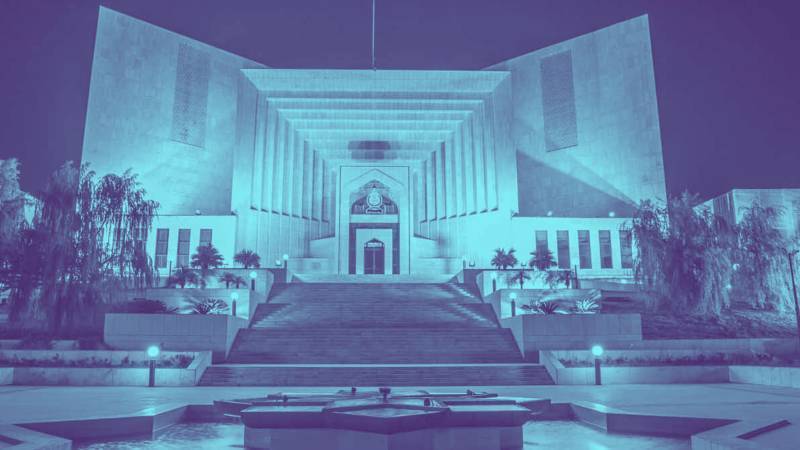
When the Lawyers’ Movement had successfully got the then Chief Justice Iftikhar Muhammad Chaudhry restored after fighting a grueling struggle against General Musharraf’s autocratic rule, the Supreme Court emerged as a clear substitute to the executive as a result. A large number of lawyers and members of the higher judiciary termed that occurrence as the ultimate attainment of their goals which they had set out to achieve through the Movement. Very few questioned the logic in jealously hogging all the powers regarding the appointment of judges by the SC through judicial pronouncements which included browbeating the parliament into passing constitutional amendments to that effect. Precious few questioned a clear departure from the main objective of the Movement, namely to put an end to the military establishment’s stranglehold on political and constitutional matters in the country. Instead, paralysing the PPP administration which was considered fair game by Iftikhar Muhamad Chaudhry in the name of independence of judiciary and rule of law at the time, was hailed as a progressive step, conveniently ignoring the fact that the war being waged against a validly elected government was spearheaded by an unelected and unaccountable SC. The same effectively heralded the arrival of the Supreme Court as the bigger partner in matters of governance installing it as an unwritten watchdog over an elected parliament.
In its passion to strike a balance between being an arbiter on matters for which it had hardly any legal or constitutional mandate, the SC came down a bit too heavily on the “corrupt and dishonest” politicians just so that the usurping but otherwise “honest” generals hadn’t felt offended. The kind of culture the above muscle flexing on the part of the SC spawned is a sordid and, indeed, a forgettable part of our history. The recently passed constitutional amendments introducing a system for the appointment of judges is by far a fairer process as compared to the past one, especially in terms of redressing the balance between the number of parliamentarians and members of the judiciary/legal profession who make up the Commission.
Although the Rules to be placed before the Judicial Commission tasked with the appointment of judges to the high courts ought to be welcomed as a step in the right direction, a few proposed amendments to the Rules may be given serious thought by its members. Firstly, though the letter and spirit of the proposed Rules are meant to bring fairness to the process without unnecessarily publicising the names proposed by its members, there is a need to limit the maximum number of names to be put forward by each member to two or three, for instance, so that the Commission doesn’t have to shortlist the future judges from an unnecessarily long list of names. Having said that, the chief justice of the concerned high court may nominate candidates for all the vacancies that are proposed to be filled under the Rules.
The onus is on the Supreme Court to ensure that the judicial appointments it purports to make have the foremost goal of fulfilling a common subject’s expectations at heart who would rather expect courts to dispense justice than finding out which judges are more interested in writing public letters to each other.
Secondly, all members must, in confidence, declare clearly and in detail how they came to know about each particular candidate they are proposing and the reasons for their nomination. For instance, the factum of a nominee being a current or a former colleague in a law office has to be declared clearly. Any familial ties through blood or marriage also need to be declared. It goes without saying that the said nominees along with reports from two civilian intelligence agencies and any relevant information regarding the candidates should form part of a big chunk of deliberations by the Commission after the lists have been finalised and are before it. The element of the above deliberations being conducted in camera is a rational and practical measure that ought to be applauded protecting the whole process from the unnecessary glare of the media but one which does not compromise the high standards the Commission aspires to bring in the higher judiciary in particular and the dispensation of justice in general.
Thirdly, the proposed physical and psychological evaluation needs to be given due care and the Rules may be further elaborated in that regard. A piecemeal adoption of the procedure for such an evaluation currently in use for freshly inducted civil servants without it being specifically tailored for judicial officers may be avoided.
Lastly, although not strictly related to the current debate, there needs to be programs/workshops mainly geared towards self-evaluation/introspection to be done by the already serving members of the judiciary. A permanent system may be in place involving seminars and lectures held by retired judges and senior lawyers from Pakistan and abroad at least biannually to regularly discuss and debate on how to improve the quality of justice through justice.
The onus is on the Supreme Court to ensure that the judicial appointments it purports to make have the foremost goal of fulfilling a common subject’s expectations at heart who would rather expect courts to dispense justice than finding out which judges are more interested in writing public letters to each other.

